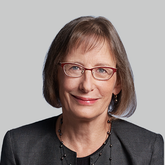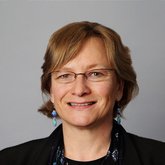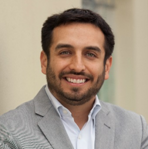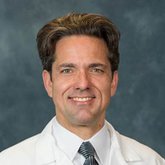The Impact of the Cambia Health Foundation Sojourns™ Scholar Leadership Program
Introduction by Dr. Diane E. Meier:
I got my start in palliative care because of an early career development award through the Open Society Institute. The support and shared experiences of peers trying to advance access to quality palliative care across the country was the essential catalyst for overcoming the sense of isolation, burnout, and discouragement that often accompanied this work, especially in the early days of the field.
I told that story to my colleagues at the Cambia Health Foundation several years ago and they decided to invest in a similar leadership development initiative: Cambia Health Foundation Sojourns Scholar Leadership Program. Since then more than forty individuals from diverse geographies, clinical settings, disciplines, specialties, and career paths have benefited from two years of generous salary support, protected time, and an incredibly generative and stimulating peer group. In my work at the Center to Advance Palliative Care (CAPC), I have also learned that the essential ingredient in successful, sustainable, and high-quality clinical, training and research programs in palliative care comes down to the effectiveness of the leadership. There is no more urgent priority for our field than investing in and nurturing the next generation of leaders.
What follows is an interview with three current Sojourns Scholars about the experience in the program and their own development as leaders.
How has the Cambia Health Foundation Sojourns Scholar Leadership Program impacted your career?
Dr. Matthew Gonzales (MG): The program has allowed me the space to be able to take a step back and have a goals of care conversation with myself about my own career and reflect on the question: “What is my highest and best use in palliative care?” For now, my answer lies in the intersection of humanistic medicine and technology. The power to affect large-scale change and incline health care towards palliative care principles relies in part on the future ability to combine these two seemingly disparate fields. As a former software engineer, I recognize that insufficient emphasis has been placed on fostering the growth of technology in this way. Since becoming a Sojourns Scholar, I’ve been able to focus my efforts on this problem, utilizing my unique experience in both technology and palliative care.
Constance Dahlin (CD): Leadership has always been a focus of my career, particularly because I am not part of an academic institution (e.g., medical center, school of nursing, or school of medicine). This includes developing the HPNA Palliative Nursing Leadership Position Statement, and implementing its concepts. Being a Sojourns Scholar has validated the necessity for investing in nursing leadership in palliative care. Additionally, the recognition and peer support has provided me the courage to challenge established academic and clinical education perspectives, weaving together important concepts: leadership, nursing, palliative care, intraprofessional collaboration, and education.
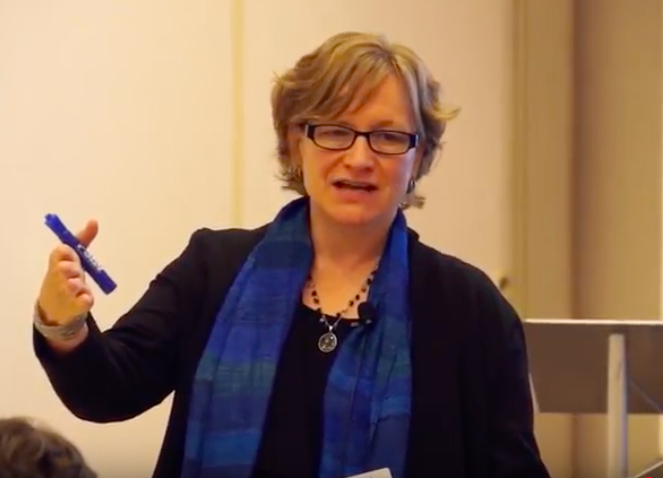
Dr. Phillip Rodgers (PR): Since starting the program in October 2017, I’ve already experienced positive influences in my professional life, including, but not limited to: additional time, expanded leadership skills, and a supportive community. Focusing on time, which the program has awarded me with, thanks to salary support, I’ve had the bandwidth to engage key aspects of both my advocacy work and leadership development, in ways that were not possible before.
My specific project focuses on advancing palliative care in value-based payment models, which present unprecedented and rapidly evolving opportunities to expand the reach of community-based palliative care teams. Seizing those opportunities takes precious time for everything from conference calls, policy research, and writing, to coalition building, in-person advocacy, and networking. The kind of energy and focus I can now place on these key tasks has already made a significant difference in both what I can produce, and in what I can become.
Can you share one critical learning that you’ve picked up from this program?
MG: Through this journey, I’ve learned a lot about myself, leadership, and the importance of focusing efforts on something that’s meaningful to you. This program has profoundly enhanced my path, and I’m sure will continue to do so.
Being a Sojourns Scholar has also benefited my health system, Providence St. Joseph Health (the third-largest health system in the country). Under my guidance and in close coordination with information technology colleagues, our team at the Institute for Human Caring created a robust architecture for recording and easily finding goals of care conversations in the electronic health record (EHR). Furthermore, our team has been able to extract this valuable data from the EHR and can determine not only when and where goals of care conversations are happening across our health system but also have the ability to explore the quality of these conversations. Displaying these data intuitively in online automated visual reports has helped us to drive practice change. Due to this, Providence St. Joseph Health is now adopting a new quality standard that focuses on ensuring patients and families who experience an ICU stay longer than five days have a goals of care conversation.
CD: Thanks to this program, I’ve learned that leadership comes in many forms, and requires skills well beyond traditional management skills. Moreover, various leadership styles and skill sets are essential to influence palliative care across all dimensions. As a Sojourns Scholar, I have examined my own leadership skills and style to hone patience, tenacity, and, above all, willingness to take risks. Review of the business literature has been instrumental in helping me to evaluate and prioritize the maximal impact of my interests and skills in the next stages of my own career path.
I have distilled and crystallized my professional passions, best use of self, and how I believe I can best contribute to the field and to the care of those with serious illness—through education. I believe education is a powerful vehicle for leadership and change; whether formal or informal, it has been undervalued as a potent medium to challenge the current health care environment and ultimately change the status quo. My project has affirmed the power of education in facilitating and promoting change as Advanced Practice Registered Nurses (APRNs) consider palliative care issues within workforce development, health care systems, finances, and patient care, as well as other areas often beyond intended boundaries.
PR: Beyond the opportunity for additional bandwidth, the program’s high priority on leadership development has pushed me to catalyze my growth, and challenged me to do better. Through pairing the hard work of creating my own leadership development plan with the program’s resources and mentorship, I’ve developed and refined leadership skills that will serve me well beyond my project and throughout my career to come.
Since becoming a Sojourns Scholar, have you been presented with new opportunities, whether professionally or personally?
MG: In order to more fully realize my potential, this program has helped me to focus time on my own personal growth as well. To better collaborate with IT colleagues, I have engaged in further software and database training. In recognition of the fact that a flexible informatics framework could be adopted by others, I’ve engaged the community of Cambia Scholars and mentors to help me to refine ideas. To equip myself better for sharing and disseminating our successes, I’ve also undergone both public speaking and media training.
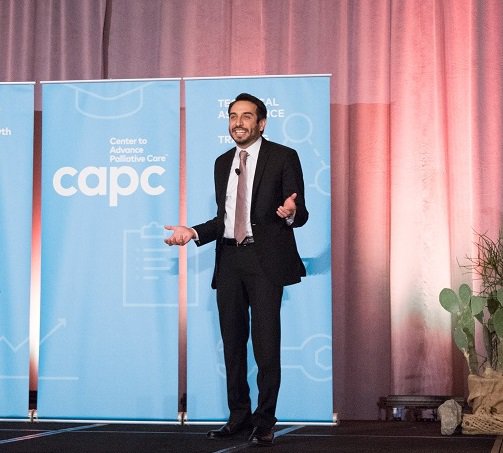
CD: The visibility of being a Sojourns Scholar has offered me myriad opportunities. For instance, collaborating with Patrick Coyne, I created the Palliative Nursing Leadership Intensive, a course for nurses at all levels to learn concepts and skills, identify their area of passion for leadership, and create a plan for leadership development. Collaborating with colleagues at five sites, I developed The Palliative Care APRN Externship for APRNS to implement essential principles of palliative care – understanding the patient as a person and what is most important; supporting family caregivers; addressing all sources of distress and suffering – in their practice and setting to promote better quality of care for all people living with a serious illness and their families. Finally, by collaborating with interdisciplinary colleagues, two leadership articles, Palliative Care Leadership and The Palliative APRN Leader were published.
PR: Being a Sojourns Scholar has allowed me the opportunity to join the amazing community of Sojourns Scholars and leaders, which I value tremendously. It’s perhaps the most enduring value of the program; simply becoming familiar with the incredible diversity of their work and leadership has been eye-opening. I look forward to enjoying their peer-support, encouragement, and collaboration well into the future.
What do you enjoy most about working in the field of palliative care?
MG: In the rush of human existence, it’s easy to get lost in the daily grind. As palliative care clinicians, one of our jobs is to provide a moment of reflection for patients to shift focus from the daily to the big picture with questions such as, “If time is short, what matters most to you?” Why are these goals of care conversations so important? As time dwindles, these conversations remind us to bring those things that are deeply meaningful into the foreground.
Do you have any advice for others interested in applying to be a Sojourns Scholar?
PR: When I first learned of the Cambia Health Foundation Sojourns Scholar Leadership Program, I didn’t think I was the type of candidate that the Foundation was looking for. As a mid-career clinical faculty physician with an interest in health policy and advocacy, no record of research funding, and just a few publications, I felt ‘too old’ for a career development award, and too unaccomplished academically to advance an already successful career. After meeting with members of the leadership team, and talking about what I wanted to accomplish and my vision for leadership development, I felt supported and encouraged; the team was clearly committed to investing in the breadth of palliative care leadership, including someone with my background and interest in policy. I applied and was thrilled to join the 2017 cohort, which has positively influenced my professional development, including the opportunity for time to focus and get things done, my own leadership development, and joining a community of scholars.
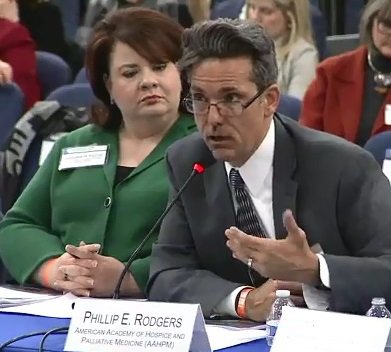
Do you have any final words that you’d like to share about the program?
MG: Through this journey, I’ve learned a lot about myself, leadership, and the importance of focusing your efforts on something meaningful to you. This program has profoundly enhanced my path, and I’m sure will continue to do so.
CD: This program is an undeniable honor and privilege. The many thoughtful and influential conversations and interactions with fellow Sojourns Scholars, and Cambia Health Foundation staff have been inspiring and thought-provoking, resulting in the motivation to create system and policy changes in palliative care locally, regionally, and nationally and ultimately improve the care of all people living with serious illness.
PR: This program offers a unique opportunity for interdisciplinary palliative care professionals to build the leadership skills and advance the work necessary to carry our field into the future. I am deeply honored to count myself among the Cambia family, and deeply grateful for the opportunities it has, and will continue to, provide me and many other leaders.
Additionally, I am thrilled to see that the Foundation has made the wise decision to expand the program to include interdisciplinary professionals beyond medicine and nursing to include social work, psychology, pharmacy, spiritual care, and others. This will enrich the community and inspire truly interdisciplinary leadership for our field.
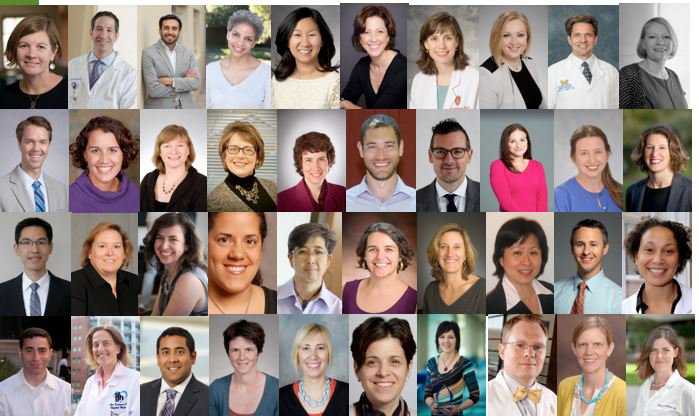
These and other Sojourns Scholars, as well as Peggy Maguire, President, Cambia Health Foundation and Elyse Salend, Program Officer, Cambia Health Foundation will be at the upcoming CAPC National Seminar, November 8-10, to talk with you about the program and answer questions about eligibility, timing, and next steps to apply. For more information about the Cambia Health Foundation’s Sojourns Scholar Leadership Program, click here.
